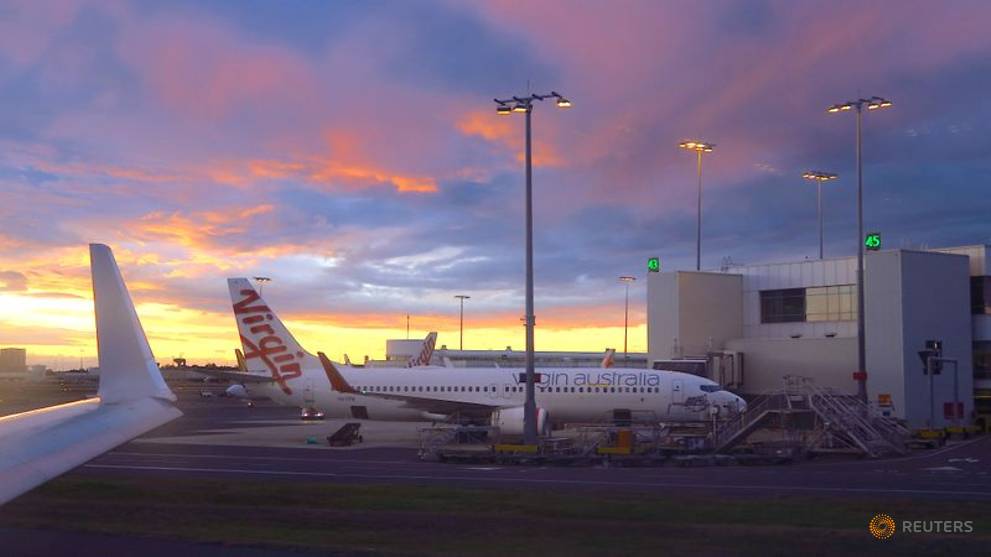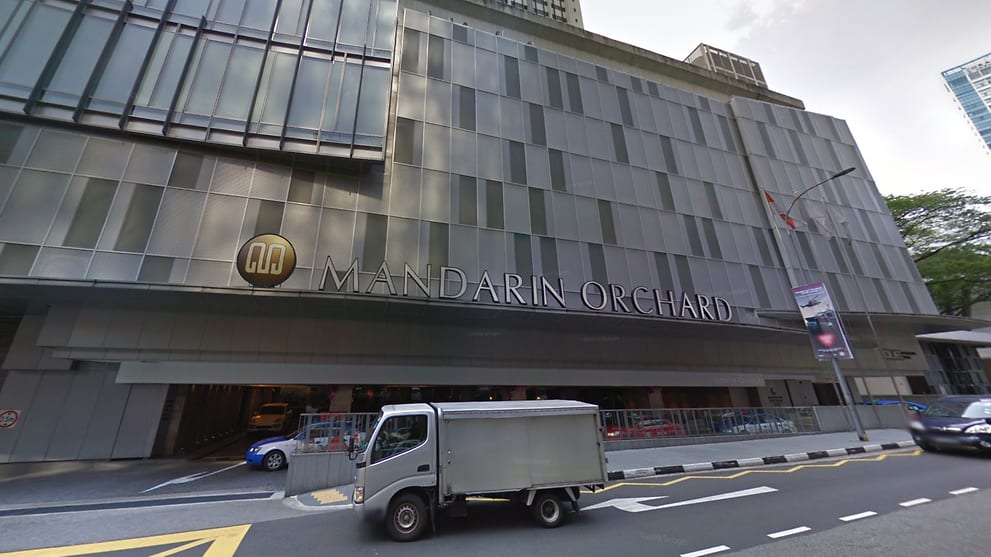SINGAPORE: The Ministry of Health (MOH) is investigating 13 COVID-19 cases who served their stay-home notice at Mandarin Orchard Singapore hotel as they were observed to have "high genetic similarity" despite coming from different countries.
The health ministry and the Singapore Tourism Board (STB) said on Saturday (Dec 19) that this suggests the cases were "likely infected from a similar source".
MOH and STB said they cannot exclude that transmissions could have occurred at Mandarin Orchard hotel.
As a precautionary measure, the hotel will stop accepting new guests with immediate effect and all current guests will be checked out, the authorities said in a press release.
"The hotel has made arrangements to check out existing guests progressively," said the authorities, adding that restaurants and event spaces within the hotel will also be closed.
Those who are currently serving their stay-home notice at the hotel will be moved to another dedicated facility.
13 CASES CAME FROM DIFFERENT COUNTRIES
"Thirteen imported cases, who were confirmed between Nov 2 and Nov 11 to have COVID-19 infection, were observed to have high genetic similarity despite the cases having arrived from different countries, including Bahrain, Canada, Indonesia, Myanmar, Netherlands, Philippines, South Korea, UAE, UK and US," said MOH and STB.
"This suggests that these cases were likely infected from a similar source."
Further investigations by MOH found that these 13 cases served their stay-home notice at Mandarin Orchard hotel between Oct 22 and Nov 11.
"Epidemiological investigations were immediately initiated to determine if there is a potential link between these 13 cases, and to study if transmission could have occurred locally, and not from their country of origin," added the authorities.
The 13 imported cases include Singaporeans, permanent residents, work pass holders and short-term visit pass holders.
Among the short-term visitors was an Indonesian woman who came to visit family members in Singapore; a British woman who came to visit her child who is a permanent resident; and a US national who was on a work project in Singapore.
MOH and STB said people on stay-home notice are housed in a dedicated tower and floors at the hotel, segregated from all other guests, with no interaction among them.
They will be taken via dedicated vehicles to an alternative dedicated facility, and deep cleaning and disinfection will be carried out by the hotel in consultation with MOH and the National Environment Agency.
Mandarin Orchard hotel has stopped taking in people on stay-home notice from Dec 13 as its contract to serve as a dedicated facility will expire at the end of December, said MOH and STB.
TESTING FOR STAFF MEMBERS
MOH has started a "special testing operation" to test about 500 staff members of the hotel for COVID-19, said the authorities. These include both staff members serving those on stay-home notice, and those who serve other guests in other parts of the hotel.
Mandarin Orchard said that COVID-19 swab tests will be carried out for all full-time and part-time employees.
MOH and STB said those who are currently serving stay-home notice at the hotel will also be tested to determine their status, instead of waiting until their stay-home notice exit swab.
In an update on Saturday night, the health ministry said that most of those currently serving their stay-home notice at the hotel have been tested, with the results pending.
"Guests who have stayed at Mandarin Orchard Singapore between Nov 11 and Dec 19 are advised to monitor their health closely for 14 days from their last date of stay.
"They should see a doctor promptly if they develop symptoms of acute respiratory infection (such as cough, sore throat and runny nose), as well as fever and loss of taste or smell, and inform the doctor of their exposure history," said the authorities.
"HIGH GENETIC SIMILARITY" SPOTTED
As part of routine laboratory surveillance, the National Public Health Laboratory conducts whole genome sequencing and phylogenetic analysis on all COVID-19 cases.
It takes about four weeks to culture the virus and complete the genome sequencing, said MOH and STB. The "high genetic similarity" between the 13 imported cases was detected.
Genome sequencing and analysis are continuing for cases beyond Nov 11, said the authorities.
The hotel said it is "working closely and cooperating fully" with the authorities in their investigations and will "continue to implement stringent infection control measures" across its operations.
"The safety and well-being of our guests and employees remain the utmost priority to all of us at Mandarin Orchard Singapore," the hotel said in a Facebook post on Saturday afternoon.
According to a list on STB's website, Mandarin Orchard Singapore was among the hotels that have been approved to reopen.
As announced by the STB on Jul 3, hotels can apply to reopen for staycation bookings as Singapore resumed more activities after the end of the COVID-19 "circuit breaker".
Download our app or subscribe to our Telegram channel for the latest updates on the coronavirus outbreak: https://cna.asia/telegram
Let's block ads! (Why?)
https://news.google.com/__i/rss/rd/articles/CBMieGh0dHBzOi8vd3d3LmNoYW5uZWxuZXdzYXNpYS5jb20vbmV3cy9zaW5nYXBvcmUvY292aWQtMTktY2FzZXMtc2luZ2Fwb3JlLXN0YXktaG9tZS1ub3RpY2UtbWFuZGFyaW4tb3JjaGFyZC1ob3RlbC0xMzgwNTc4ONIBAA?oc=5
2020-12-20 08:45:49Z
CBMieGh0dHBzOi8vd3d3LmNoYW5uZWxuZXdzYXNpYS5jb20vbmV3cy9zaW5nYXBvcmUvY292aWQtMTktY2FzZXMtc2luZ2Fwb3JlLXN0YXktaG9tZS1ub3RpY2UtbWFuZGFyaW4tb3JjaGFyZC1ob3RlbC0xMzgwNTc4ONIBAA



